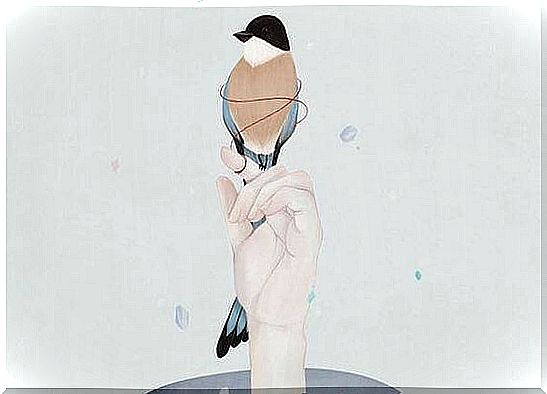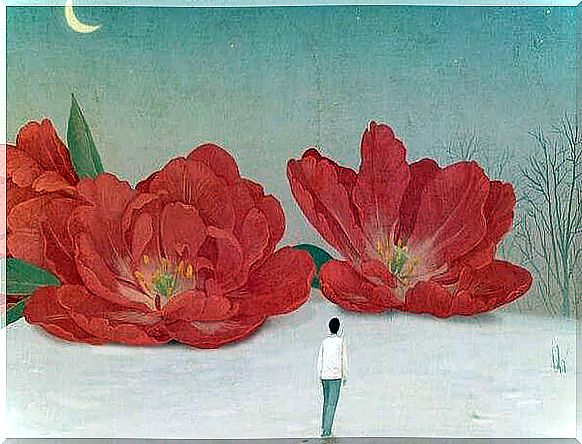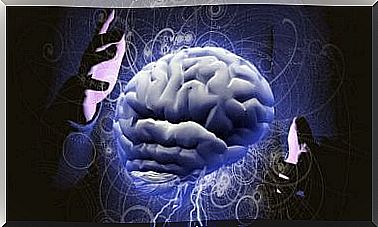Good People Weren’t Always Happy

Good people have not always been happy. In their hearts are hidden many sorrows and disappointments that they know how to hide with warm smiles.
Kindness is a virtue that characterizes all beings capable of understanding that sadness also has a saving meaning, and that it helps us to be more sensitive to the pain of others.
In goodness, whether we like it or not, always lurks drops of lukewarm sadness, necessary for us to focus on the important things, and to purify dreams.
If there is one thing that characterizes good and noble people, it is that in their sorrows there is no resentment or bitterness. They will never use resentment to hurt others.
Psychologist Antoni Bolinches suggests in his book “El secreto de la autoestima” (“The Secret of Self-Esteem”) that while it is an essential source of gratification and self-affirmation, kindness is also a disadvantage for social success.
Indeed, sometimes the person who acts with “ethical consistency” is not very good at competing with others.
We invite you to think about this.

Good people: an ongoing struggle to conserve gasoline
We are not going to get into the debate which consists of asking whether humans are good by nature or if they become so over time.
What we do know is that good people struggle every day to retain their essence. We are in a world where success is linked to competition and where nobility is sometimes linked to “fragility”.
All of this sometimes plunges us into a very complex type of social neurosis.
People who have lofty ideals, who are as concerned about their neighbor as they are about themselves, don’t really abound.
This does not mean that everyone is “bad”. We should not see our reality in black or white, good or bad.
Human psychology does not work that way. There are multiple nuances and personal journeys that have allowed us to see the world in one way or another.

Kindness, an interior journey that also focuses on the exterior
Kindness is not only part of an inner journey as its reflection can also be seen from the outside:
- Today we live in what one might call excessive self-knowledge. It is an almost exaggerated interest in anything to do with self-knowledge. We dedicate a lot to ourselves in order to achieve happiness.
- This “spiritual materialism” is characterized by the continual question “ why am I not happy” or “why am I not getting what I want”.
Little by little, we fall into an obsession where we simply forget to live and even worse, we disconnect from the people around us.
- On the other hand, these people with noble deeds also went through stages of “self-knowledge”. They had to integrate the phase from which they came out healed, relieve disappointments, heal betrayals and above all, ACCEPT YOURSELF.
After finding and healing themselves, they also focused on the outside to devote themselves to others as they did to themselves.
Their sensitivity makes them come together with the people around them to help, and to bring happiness. These are their roots, their essence …

Kindness also needs clean spaces
Nobility, kindness, respect or gratitude are strengths, in addition to being virtues. Even though these are traits that everyone has in more or more quantity, it is interesting to know that the one who accepts them as real traits and who practices them often enjoys better mental and physical health.
Good people enjoy a great sense of well-being every time they help, support and invest their time for others, because in their brains a neural circuit linked to pleasure and reward is activated.
On top of that, chemicals related to happiness like dopamine and oxytocin are secreted.
Stimulating our qualities of solidarity brings us into a virtuous circle where we also contribute to the well-being of others.
But there is something essential that must not be forgotten: goodness also needs its own spaces and limits through which one can preserve its integrity.

Cognitive psychologist Paul Bloom, professor at Yale University and contributor to the journal Nature and Science tells us that sometimes the relationship between empathy, kindness and compassion brings us a fair amount of suffering.
- Too much empathy can lead to strong emotional pain caused by those around us and exhaust us or even make us mentally ill. It is therefore necessary to establish a prudent and healthy limit.
- We must also control our role as “saviors” too, we cannot help everyone, nor is it advisable to take on all the burdens of others while waiting for things to be resolved like this. In fact, not everything always works.
- Sometimes people who try to “save” everyone forget to save themselves. Don’t allow it, sometimes a “no” in time is the smartest solution and you won’t be a bad person.
Good people are also able to take care of themselves by setting limits and then giving the best to others when it is really necessary.

Images of Mi-Kyung Choi









